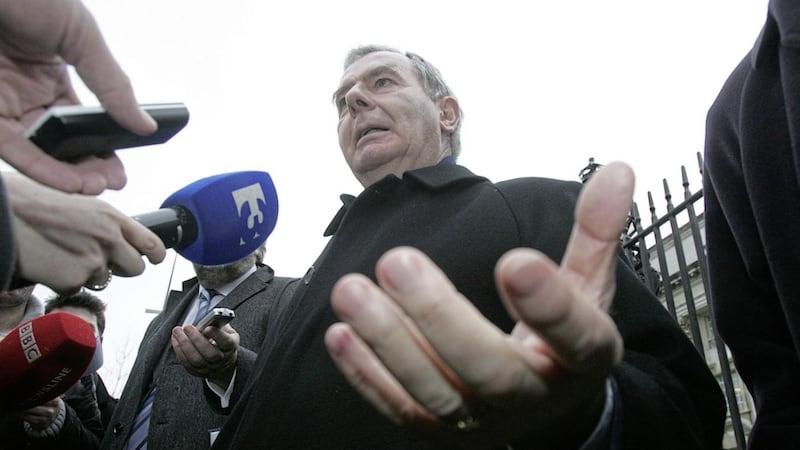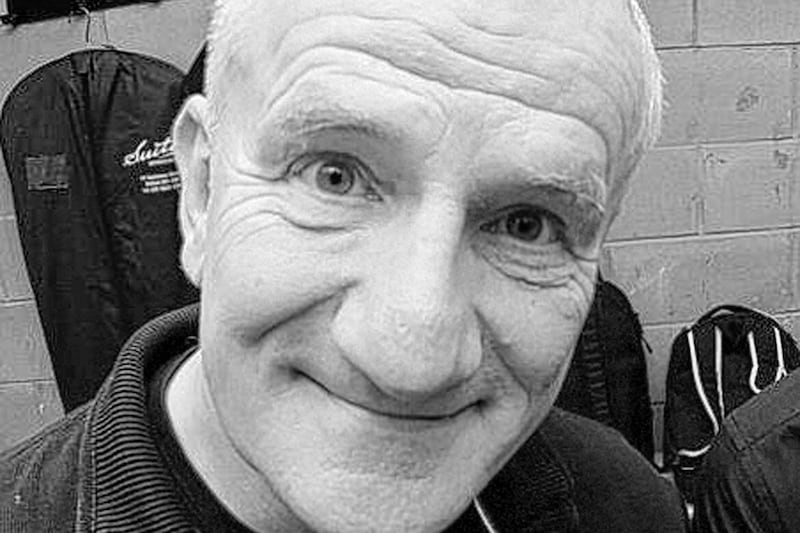THIS week I have a tale to tell, a tale so outlandish you will scarcely believe it true – but true it is. So, if you're sitting comfortably, I shall begin.
Not long ago, in a land not far away, there once lived a simple farmer. His farm was very poor – his plough turned up nothing but small stones and little would grow. Then, one night, the farmer had a strange dream. He dreamed that if he washed these stones they would turn to gold.
He awoke the next morning feeling very silly, yet for the whole day he could not shake the memory of his dream. He knew he would need to buy machinery to wash his stones, which, as he was poor, would mean borrowing from the money lender. Afraid to tell anyone of his dream for fear they would laugh at him, he borrowed £100 – a fortune at the time – and with his new machinery, gathered up his first crop of stones.
He brought them into his old dilapidated barn and there poured water over them. The farmer jumped back in amazement, as before his eyes, the small grey stones turned to gold and his whole barn was bathed in the yellow light of their beauty.
Even though he was now the richest man in his townland, the farmer's dreams did not stop. He dreamed of turning other things into gold such as glass, packaging and insurance, and with each new dream the farmer employed more and more of his neighbours, who were so grateful, they made him their chieftain.
With each passing year, the chieftain became richer and richer until he wasn't just the richest man in his townland, but the richest man in the whole land. Realising nothing was now beyond him, when he needed something, he did it himself.
The chieftain now had so much gold he could not keep it at home and instead gave it to the money lender for safe keeping, and so others who needed a loan to follow their dreams could get one. Then, one night, the farmer had the most amazing dream of all – he dreamed that instead of giving his gold to the money lender, he would himself become a money lender.
But, once again, afraid that others would laugh at his dream, he quietly went about buying the money lender's business, piece by small piece. Tragically, what the chieftain did not know was that money lenders had long since given up simply lending money. They had become so poisoned by greed, they had begun to gamble the monies given to them in good faith, on schemes even they did not understand.
And so it came to pass: the house of cards created by the money lenders collapsed and the wealth of the whole land was found to have been squandered by them. The chieftain knew nothing of all this, as he was a man who created gold, not gambled it.
The money lenders now whispered into the ears of every lands' highest chieftain that, if they weren't rescued, then the world would end and all of life would tumble into the black hole of debt they had created. The world's great chieftains believed this lie and were so terrified they agreed to take their peoples' money and give it to the money lenders, so they could continue with their gambling addiction.
But there was no one to rescue the simple farmer. He lost all he had built – his businesses, his gold and even his liberty after he was put in prison, a fate no money lender ever had to face.
THE END.
Of course, this isn't the end. The Shakespearean tragedy that is the story of Sean Quinn is once more in the news, after a group of cruel and callous thugs kidnapped and tortured Kevin Lunney, a Quinn Industrial Holdings (QIH) director.
With both Garda Síochána and the PSNI currently investigating, it would be wrong for me, or anyone else, to presume to comment on the case other than to point out that Sean Quinn has consistently denied any involvement in wrongdoing.
Those involved in the campaign of terror in the border area need to pause and think. This week, John McCartin, non-executive director at QIH, warned that the firm's American owners would "close the company down rather than give into intimidation". This would result in the loss of over 800 jobs in an area of high unemployment.
Even in the world of giants, it is a known fact that two wrongs doth not make a right.









